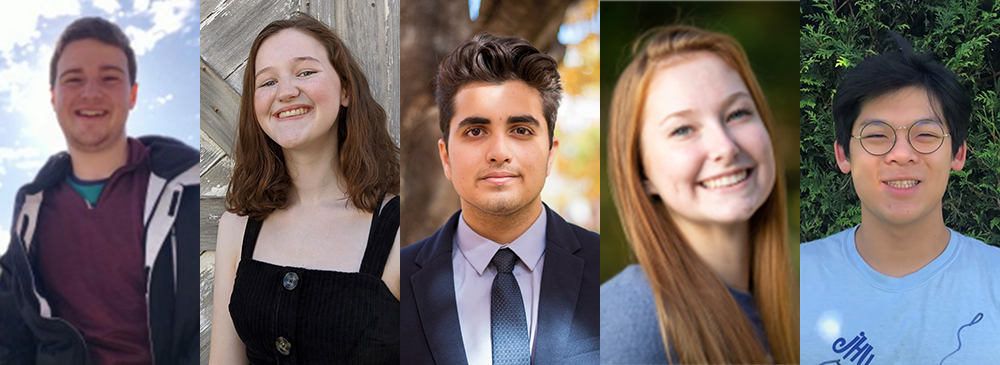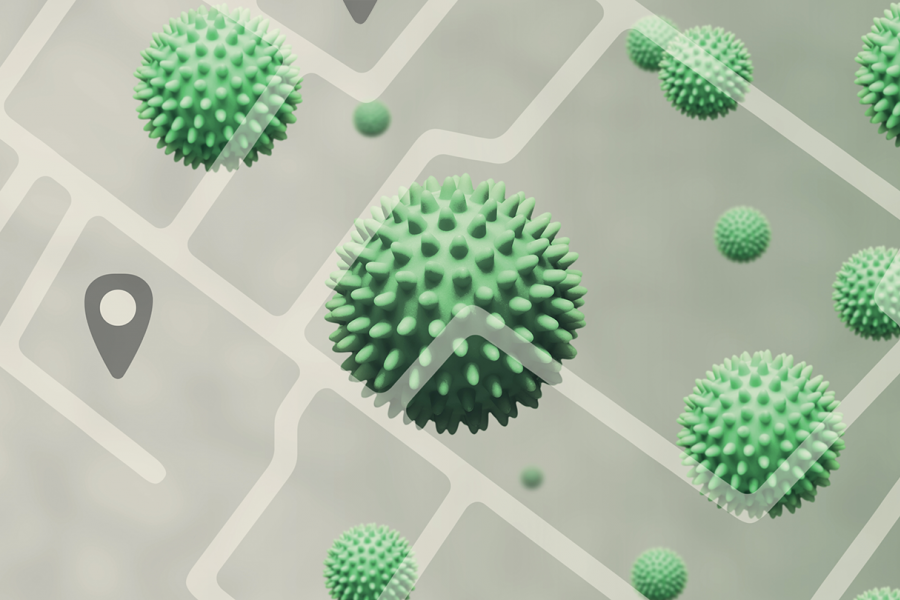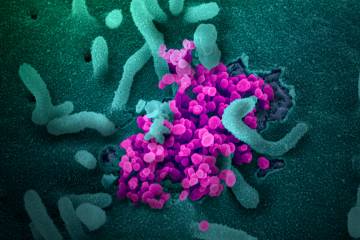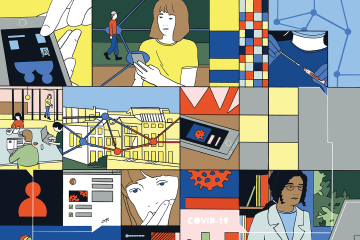Interviewing those with confirmed diagnoses of COVID-19, as well as the people exposed to them, contact tracers are a vital tool in tracking the disease and encouraging those exposed to quarantine.
Public health majors in the Krieger School of Arts and Sciences have volunteered for this vital role at their local health departments over the past several months. The undertaking, students say, has been simultaneously eye-opening, frustrating, monotonous, and rewarding.
Sophomore Teagan Toomre spent the summer as a contact tracer/case investigator in Northern California, where she spoke with people who had COVID-19 and their contacts, referring them to resources like quarantine housing, food and medication delivery, and work excuse letters.
"I learned that part of what makes work rewarding for me is being able to help people," she said. "I felt like I was making a difference, both within the health department and for the cases and contacts I interacted with."

Image caption: Public health majors (from left) Jeremy Costin, Lucy Nielsen, Rithvic Jupudi, Teagan Toomre, and Jonathan Lee say they experiences of contact tracing has been simultaneously eye-opening, frustrating, monotonous, and rewarding.
Jonathan Lee, a sophomore who is continuing his work as a contact tracer in Delaware, calls people who had tested positive for COVID-19, as well as those who might have been exposed to someone who tested positive. In each case he asks people to walk him through their daily activities starting two days before their symptoms began. The information is then pieced together by the Delaware Department of Health to track any individuals who may have been exposed.
"A lot of people I call have no idea that they're supposed to self-isolate, and a lot of them are in need of food and housing assistance. You're directly serving your community and making a difference in the lives of the most susceptible," Lee said.
Rithvic Jupudi, a senior, does contact tracing at the Michigan Department of Health and Human Services as part of his Applied Experience, a requirement of the Public Health Studies Program. Majors must complete 80 hours of a supervised, hands-on experience with public health professionals. He says in one of his first contact tracing calls alerting a person that they had been exposed to the virus, the susceptible person refused to quarantine for the recommended 14 days.
"I was lost for many seconds," he said. "I had to regain my thoughts and try to understand where he was coming from before trying to persuade him to look out for his community. It was a tough experience, one that reminded me of the diversity of opinion and thought even in what are supposed to be matters of science."
He adds that the experience has ingrained in him a deep appreciation for the public health workers across the nation who are helping coordinate a response to the pandemic.
"I've learned how important it is that we have motivated volunteers nationwide who are putting the health of the nation first," Jupudi said. "I do not think I am doing some crazy service, but I am proud of the force of students nationwide who have devoted sizable amounts of time to ensuring that our states are safe."
Driven to the work by a conviction that contact tracing is an effective means to help contain the virus's spread, the students quickly found that not everyone they spoke to understood or agreed on their tactics.
"We experienced super varied responses to our investigations," says Lucy Nielsen, a sophomore who is continuing her work as a contact tracer and data analyst in Nebraska. "A lot of individuals were open to sharing contacts and information and abiding by the quarantine and isolation orders, but some just didn't see the point. Nebraska never had a stay-at-home order or statewide mask mandate, and we often ran into individuals who thought public health was overstepping their powers."
Jeremy Costin, a senior who worked over the summer as a contact tracer in New York State, said language barriers were one of the most frequent challenges he faced.
"Thankfully, we had two Spanish-speaking contact tracers on my team, so most Spanish speakers went to them, but for the few I did interact with, it was a challenging experience to make sure they truly understood what they needed to do to successfully quarantine," Costin said. "We also had daily trainings on a range of topics designed to help us in our job and connect to the contacts we will be speaking with—things like understanding Orthodox or Amish communities, or other topics like cultural humility."
In addition to formal skill-building opportunities, students found that the experience provided on-the-job training in less explicit ways as well.
"For most individuals, taking two weeks off to self-isolate and quarantine isn't financially feasible, so they have no other option but to go to work," Lee said. "Additionally, many workplaces, such as factories and food processing plants, have employees work in close contact with one another. Contact tracing has highlighted the inequalities that exist within my own community and has taught me that although we are all living through this pandemic, none of us are experiencing it the same way."
Toomre's experience also provided a window into the nimbleness that a crisis like the pandemic requires of a public health department.
"I was able to see firsthand how quickly the response to COVID was developed and how often it is updated as new information is learned," she said. "The ability to develop and rapidly deploy protocols across a broad population is something highly unique to public health. No one was prepared for this pandemic, but epidemiologists, health care workers, scientists, and so many more all came together and devoted their time to help control it."
The students agreed that their studies had given them useful knowledge and skills to draw upon in their unexpected roles, where familiarity with public health is not required.
"Having a background in public health allowed me to understand not just what we were doing but why the protocols were developed as is," Toomre says. "Knowing the methodology helped me engage more deeply with my work to stay interested. I was also able to be a resource to my colleagues, answering questions and providing clarity, as most of them had no background in health care or public health whatsoever."
Posted in Health, Student Life
Tagged public health, student life










